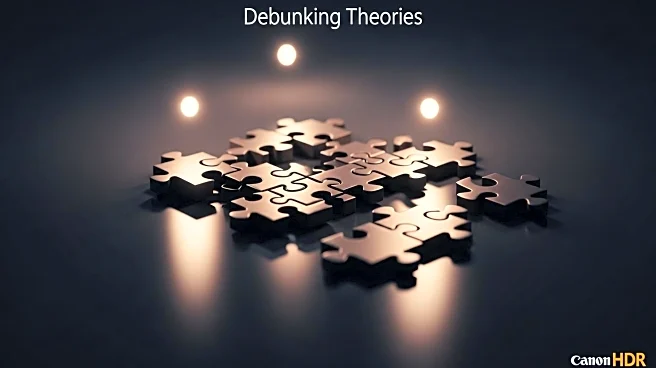What is the story about?
What's Happening?
Following the assassination of conservative activist Charlie Kirk on September 10, 2025, social media platforms have been rife with theories suggesting that the 1998 film 'Snake Eyes,' starring Nicolas Cage, predicted the event. These claims highlight supposed similarities between the film's plot and Kirk's death, such as a character named Charles Kirkland being shot in the neck during a boxing match, and a boxer character whose name partially resembles that of Kirk's alleged killer. However, these theories have been debunked as there is no substantial evidence linking the film to the real-world event. The film's fictional assassination occurs on September 19, not September 10, and the character Charles Kirkland is depicted as the U.S. Secretary of Defense, unlike Kirk, who was a political commentator.
Why It's Important?
The spread of misinformation and conspiracy theories on social media can have significant implications for public perception and trust in media. Theories like these can distract from the actual investigation and potentially influence public opinion based on unfounded claims. The rapid dissemination of such theories underscores the challenges faced by platforms in moderating content and the importance of critical media literacy among users. For stakeholders, including law enforcement and media outlets, addressing misinformation is crucial to maintaining credibility and ensuring that public discourse is informed by facts rather than speculation.
What's Next?
As investigations into Charlie Kirk's assassination continue, it is likely that law enforcement will focus on factual evidence rather than speculative theories. Social media platforms may face increased pressure to manage the spread of misinformation, potentially leading to more stringent content moderation policies. Public discourse may also shift towards discussions on the role of media in shaping narratives and the responsibilities of platforms in curbing false information.
Beyond the Headlines
The incident highlights broader societal issues regarding the consumption and spread of information in the digital age. It raises questions about the ethical responsibilities of content creators and the impact of fictional narratives on real-world events. The case also illustrates the potential for films and other media to be misinterpreted or co-opted into conspiracy theories, emphasizing the need for critical engagement with media content.














